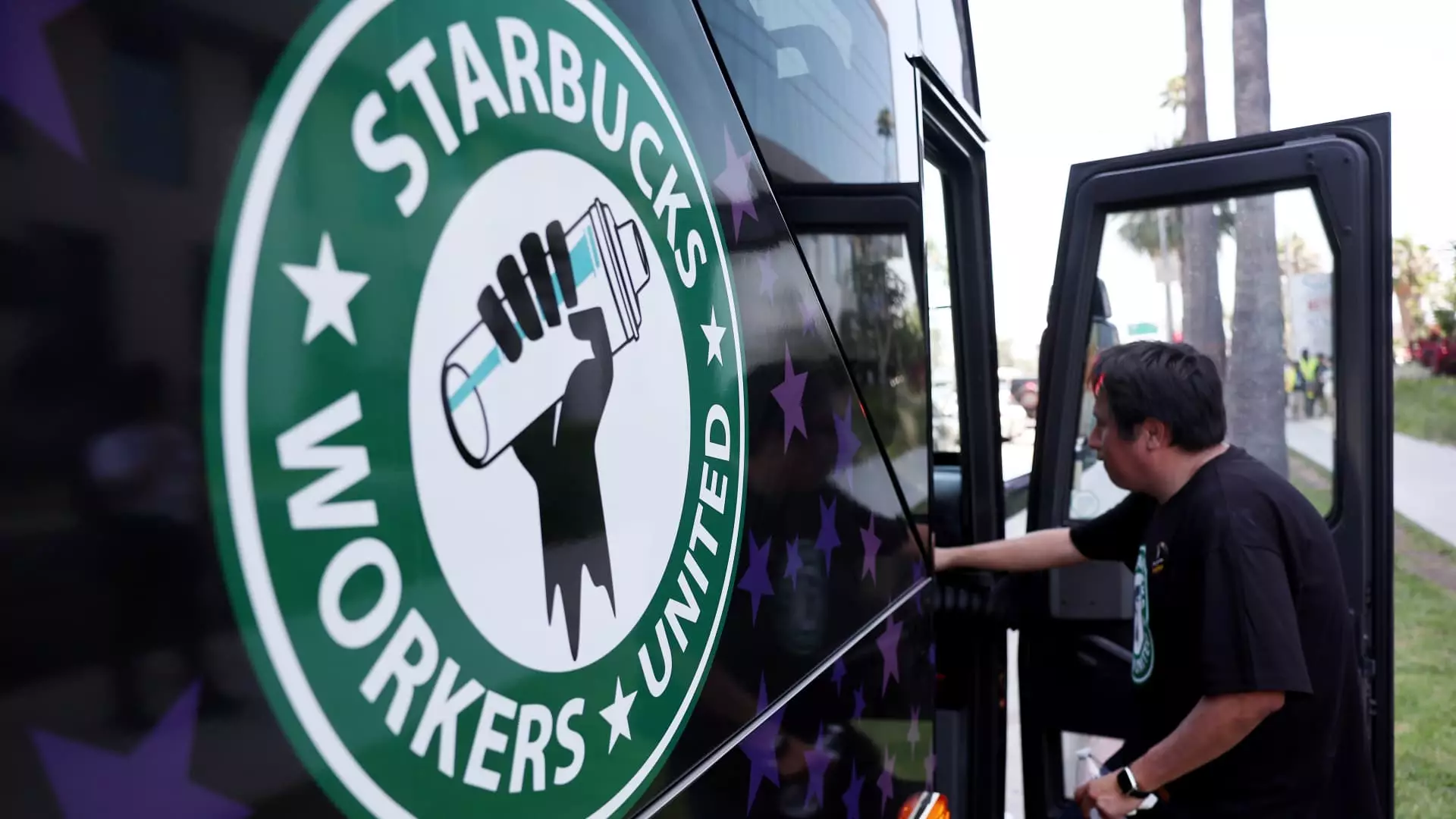In a striking move, Starbucks Workers United announced on Tuesday that a staggering 98% of its union baristas have voted in favor of authorizing a strike. This overwhelming mandate emerges as workers push for a contract with Starbucks, signaling potential upheaval in the coffee giant’s operations. As the union prepares to return for what is anticipated to be the final session of negotiations this year, both parties are hopeful to establish a foundational framework that could lead to a lasting agreement.
Despite having engaged in extensive bargaining sessions throughout the year—accumulating hundreds of hours and dozens of tentative agreements—fundamental issues remain unresolved. The union emphasizes that several unfair labor practice cases still linger, highlighting a contentious atmosphere and unmet demands regarding wages and other essential benefits for baristas. Workers United argues that Starbucks has yet to propose a holistic package that adequately addresses these concerns, indicating a significant gap between the company’s offerings and worker expectations.
In response to the union’s assertions, Starbucks characterized the union’s stance as disheartening, emphasizing its commitment to the negotiating process. The company claims to have engaged in more than eight extensive bargaining sessions since April, during which they reached meaningful agreements on a range of topics that Workers United representatives had flagged as crucial. This highlights a divergence in narratives—where the union perceives stagnation, Starbucks views progress. The contrasting depictions of negotiations illuminate the complexities involved in labor discussions and the challenges of reconciling the interests of workers and management.
The prospect of a strike represents a significant escalation in what has already been a tumultuous relationship between Starbucks and its unionized workers. Relations appeared to thaw earlier this year after fruitful discussions facilitated by mediation; however, the latest developments suggest that old tensions may be resurfacing. Starbucks’ attempts to quell the unionization movement over the past two years have met with public pushback, leaving both parties in a precarious position.
The arrival of new CEO Brian Niccol, who assumed the role in September, adds another layer of complexity. Pledging to approach negotiations in good faith, Niccol announced an increase in paid parental leave, a gesture aimed at fostering goodwill. However, the good faith effort may be overshadowed by a proposed reduction in annual pay hikes amid a reported slump in U.S. sales. This downturn raises questions among employees about the viability of their demands and the company’s willingness to meet them, particularly after the remarkable union movement that saw over 500 Starbucks locations vote to unionize under Workers United.
As both sides brace for the upcoming negotiations, the situation remains fluid. The overwhelmingly supportive strike authorization from union members amplifies the urgency for meaningful dialogue. Industry observers will closely watch how Starbucks navigates these challenges while attempting to maintain its reputation in a market increasingly sensitive to labor issues. The outcome of these negotiations could have a profound impact on not only the company’s operations but also the broader landscape of labor relations in the retail sector.

